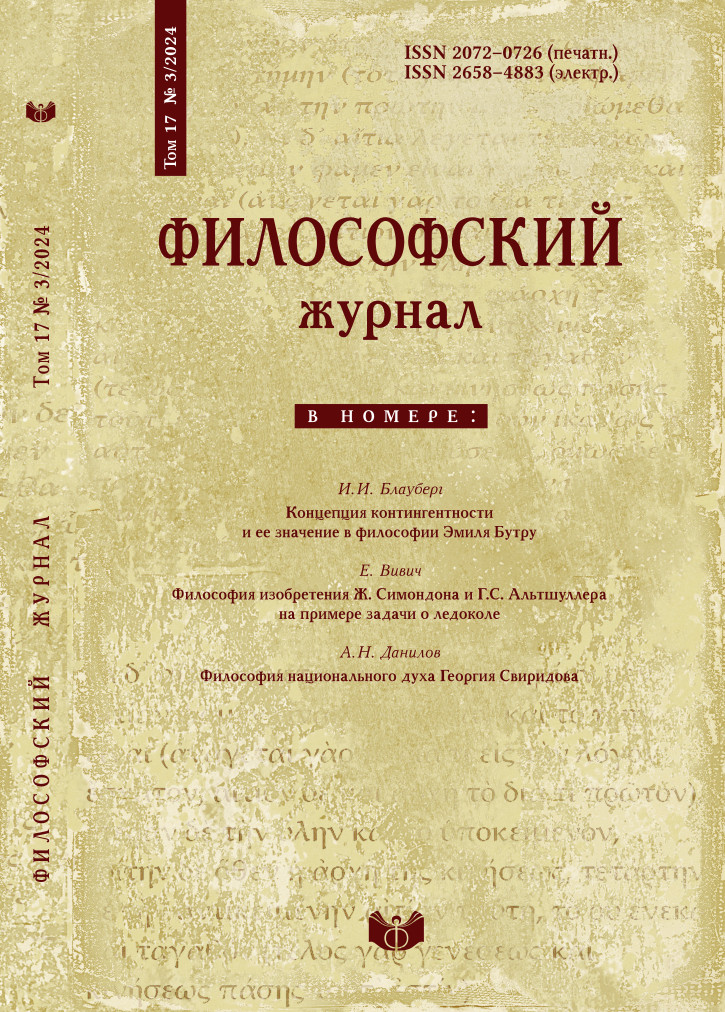Yuly Aykhenvald: an apologia of the everyday life
DOI:
https://doi.org/10.21146/2072-0726-2024-17-3-150-164Keywords:
Yuly Aykhenvald, philosophical discussions, philosophy of life, historiosophy, revolution, everyday life, literary preferences, “natural symbolism”, “natural Christianity”, Russia’s destinyAbstract
The paper discusses for the first time the “philosophy of life” of the famous literary critic and philosopher of the first quarter of the twentieth century Yuly Isaevich Aykhenvald (1872–1928) in connection with his interpretation of Russian history and literature. The article examines the publications of Yu.I. Aykhenvald in the newspaper “Rul’” in the first half of the 1920s, stimulated by his participation in various philosophical discussions that took place at that time in Berlin (F.A. Stepun’s lecture “Tragedy and Modernity”, S.S. Oldenburg’s report “Russian Literature and Revolution”). Special attention is paid to the report of Yu.I. Aykhenvald “On the question of the meaning of history”, read in the Russian Scientific and Philosophical Society on April 14 (1), 1923. It is shown that for a critic-philosopher, any revolution is always opposed by the “progressive force of history”, the temple of human existence built on the basis of everyday life for centuries. It is demonstrated that for Yu.I. Aykhenvald, daily life is full of great meaning and a special “metaphysical height”. At the same time, Aykhenvald’s attitude to everyday life is the basis of his literary preferences, due to this, the “natural symbolism” of Alexander Pushkin, Apollon Grigoryev, Leo Tolstoy, Ivan Bunin, Boris Zaitsev unexpectedly, but quite logically, turn out to be consonant with ideas of Vladimir Solovyov in his service to the beauty of world life, “overcoming flesh, spiritualizing matter, idealizing objectivity”. It is proved that the interpretation of everyday life is associated in the worldview of Yu.I. Aykhenvald with views both religious (the idea of “natural Christianity” as the “imperishable myth of nature” underlying the entire natural world, the “real miracle” of dying and resurrection, which finds “refraction in the religious feeling of people”) and historiosophical (Russia’s destiny and its attitude towards Europe).






